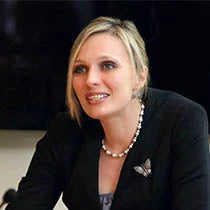 Photo: Mariana Kaipper Ceratti/World Bank.
Photo: Mariana Kaipper Ceratti/World Bank.
Effective management of state-owned enterprises (SOEs) can offer countries a layer of defense for fiscal resilience and sustainability when resources become scarce due to natural disasters. This issue is especially relevant for Caribbean countries that deal with frequent hurricanes and are now facing the COVID-19 pandemic as well.
SOEs are present throughout the Caribbean economy in the air, sea and land transport, telecommunications, energy and water, agriculture, housing, and the service sectors. These sectors often suffer from a lack of useful quality information and inadequate monitoring of performance. Some operational challenges include the efficient and effective use of government resources, quality service delivery, and ongoing privatization and divestment efforts.
There were also challenges associated with fiscal risks and contingent liabilities, weak compliance with policies and reporting procedures, and significant debt accumulation. Indeed, commercial SOEs can pose important fiscal risks through large budget subventions, forgone tax revenue, and accumulation of arrears. Commercial SOEs should generate revenues sufficient to cover their operational costs, but many accumulate significant operating deficits and payment arrears to other enterprises and to the tax authorities.
That’s why, a few summers ago, the World Bank Group Global Knowledge and Research Hub in Malaysia and the government of Malaysia collaborated on the Supporting Economic Management in the Caribbean (SEMCAR) Program to organize a knowledge exchange aimed at strengthening the capacity of twelve Caribbean countries to more effectively manage their SOEs. The dialogue also factored in the Caribbean nations’ unique geographic positions, and innovative tools to build resilience for emergencies were developed that can be useful now to combat the current pandemic.
This knowledge exchange opened an opportunity for thoughtful, committed practitioners to learn from each other and how the Malaysian government turned weak operational and financial performances into high performing entities that become profitable, dynamic, performance-oriented, and well-governed.
The SEMCAR Program was financed by Global Affairs Canada and implemented jointly by the World Bank and the International Monetary Fund. With World Bank assistance and through ongoing active policy dialogues under several budget support operations, lessons learned were adapted to the local context.
Here’s how it worked: a Caribbean delegation including sixteen officials from 10 participating SEMCAR countries came together, representing: Antigua and Barbuda, Barbados, Dominica, Grenada, Jamaica, St. Vincent and the Grenadines, Suriname, Trinidad and Tobago, St. Lucia, St. Kitts and Nevis. The delegation learned valuable lessons from the implementation of Malaysia’s National Transformation Program (NTP), one that included government and economic transformation, as well as strategic reform initiatives.
The NTP, driven by the Prime Minister's Performance Management and Delivery Unit Prime Minister’s (PEMANDU), provided more involved and transparent leadership to assure the successful implementation of the reforms. The program helped implementing agencies better coordinate with each other and required more careful monitoring of key performance indicators. In order to improve accountability of the reforms, the program required extensive communication with all stakeholders and kept the public informed on their progress.
Discussions with the Ministry of Finance and Khazanah, Malaysia’s wealth management fund, gave the Caribbean delegations further insights into the details of how Malaysia’s government-linked companies (GLCs) had become profitable and more efficient. For example, they found that Malaysia’s regulatory practices simplified several regulations and re-engineered business processes. This proved to be particularly useful, especially in how firms interact with the state.
For several participants, the experience produced a critical shift in approach and thinking. Malaysia’s management of GLCs provided Caribbean countries with a new vision for excellence to replicate. For the representative for Suriname, it was most important to promote meritocracy in civil service, set clear goals and targets through an inclusive process, assure buy-in of all stakeholders, and include the political opposition in discussions. They also noted the importance of the GLCs to adopt a “professional business attitude” while pursuing ambitious goals.
After visiting Malaysia, all participants including the authorities in Grenada, St. Lucia, and St. Vincent and the Grenadines developed a new appreciation for the importance of the process of change management beyond legislative mandate and leadership. St. Vincent passed critical regulation to strengthen SOE oversight in 2019 and new monitoring tools were developed in Grenada and in St. Vincent. These tools have the potential to strengthen the capacity of the Ministries of Finance to oversee the SOE sector and assure its fiscal sustainability.
Supporting SOEs and resilient public financial management reforms in the Caribbean region continues to this day, with funding from the Canadian Government. “Benchmarking Caribbean Water Utilities” released in 2020 offers policymakers and practitioners useful recommendations, relevant for their unique situations and to build future resilience.
The devastation of the past hurricane seasons is a tragic reminder that countries need to be prepared. Lessons on building resilience will help them well when facing new challenges, such as the global pandemic. Advancing SOEs reforms is one of several ways to cultivate a path for responsible fiscal practices and key to building resilient governance.




Join the Conversation